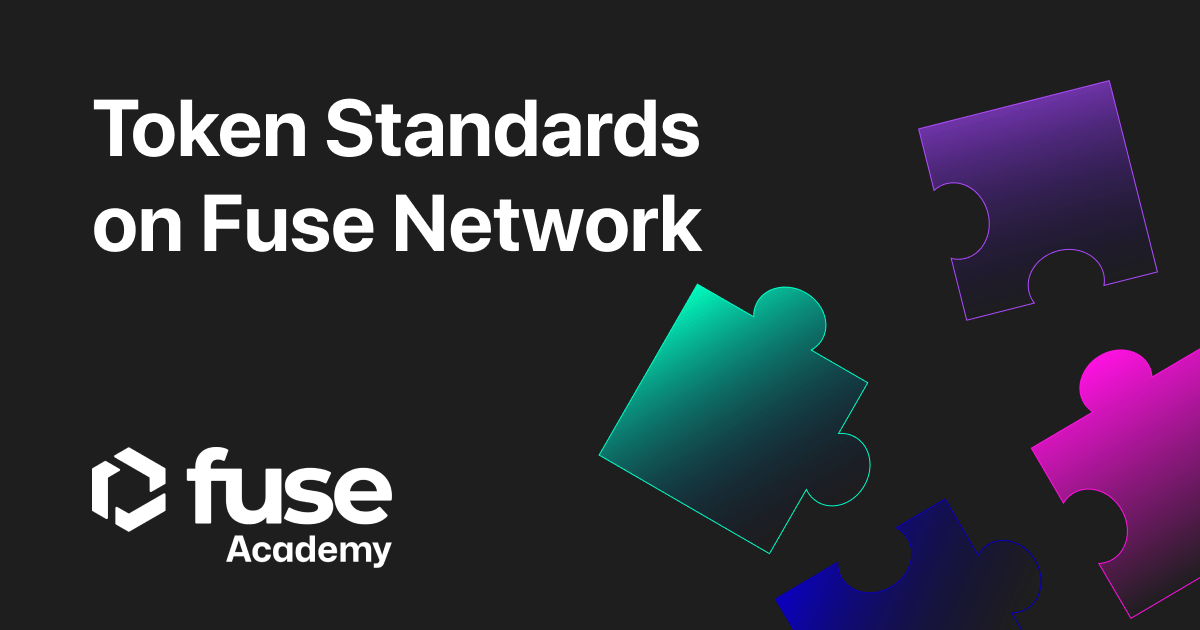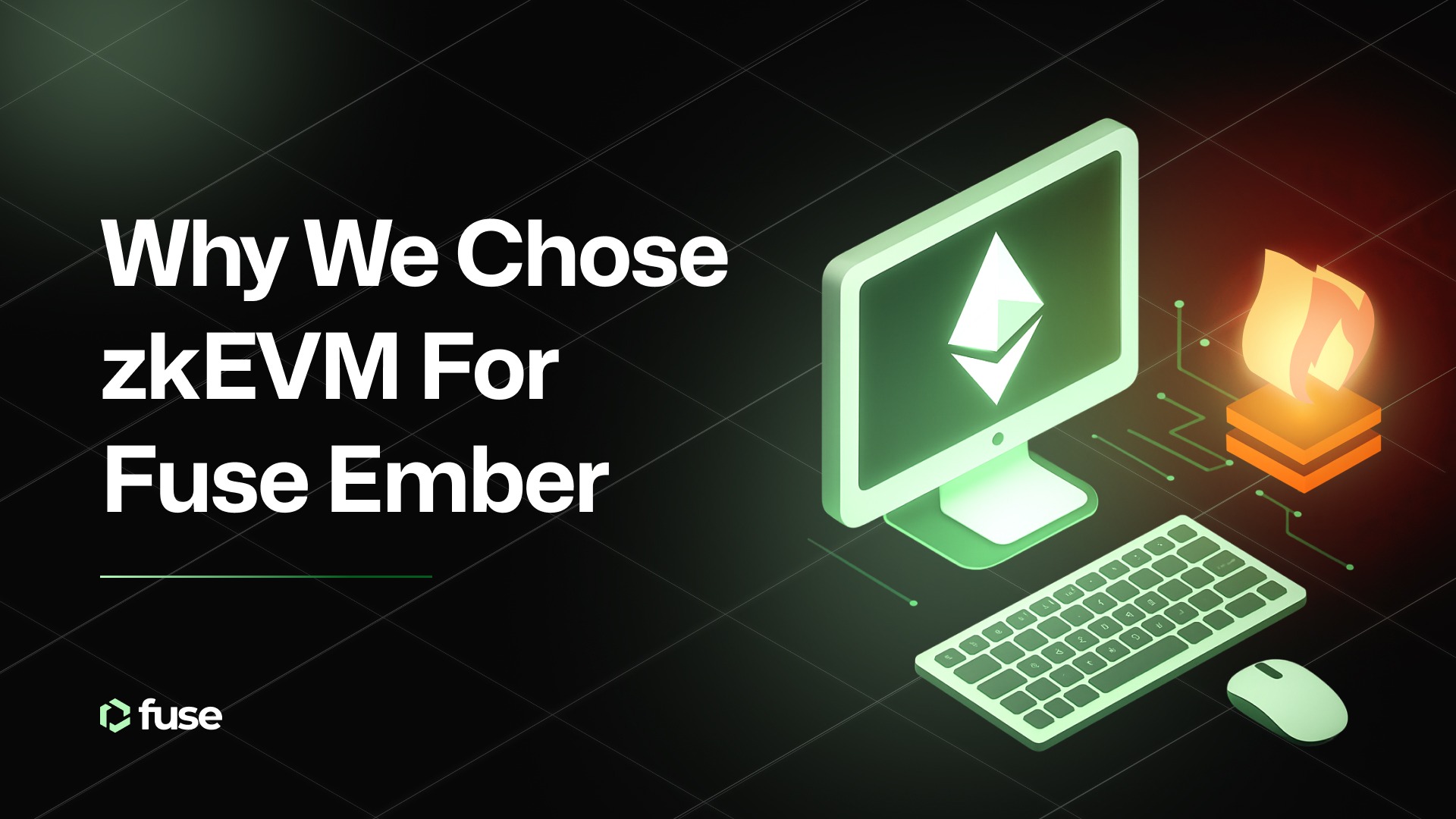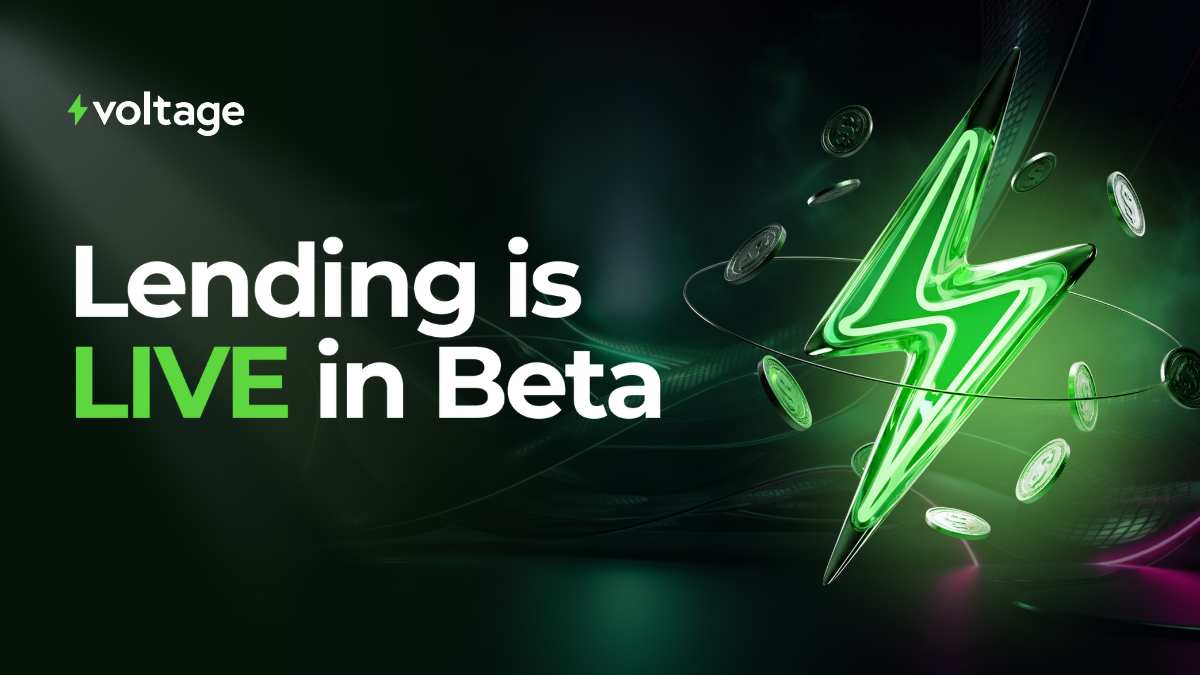Any smart contract or decentralized application (dApp) deployed on Ethereum or another EVM-compatible chain will function if deployed on Fuse Network. This includes ERC-20, 721, 1155 standard-compatible contracts, and SBT, Soulbound Tokens. No smart contract code modification is required to run on Fuse Network.
Token standards provide a set of rules that guide the configuration, process, development, and conduct of cryptocurrency tokens on the blockchain. Most importantly, for token standards to be valuable, they must be widely adopted.
Without significant adoption, the token rules cannot be called standard. On EVM-compatible blockchains, such as Fuse Network, token standards are dictated by Ethereum’s IEP proposals and have become the most widely adopted token standards. As an Ethereum Virtual Machine (EVM)-based chain, Fuse Chain’s development is essentially the same as that of Ethereum and other EVM chains.

Understanding token standards
Current Ethereum token standards are ERC-20, ERC-721, ERC-1155 standard-compatible contracts, and SBT, Soulbound Tokens, which we will dive into in more detail below.
ERC-20
In 2015 the ERC-20 token standard was proposed, which would later be the primary method for developers to design tokens, including virtual tokens, staking tokens, and virtual currencies.
The ERC-20 is a token standard to develop assets that follow common rules and are interchangeable with one another (i.e., fungible). So if you create 1,000 units of an ERC-20 token, each unit will have the same functionality.
ERC-721
The most popular token standard for creating NFTs is ERC-721, also known as non-fungible tokens. Whether it’s a limited edition NFT or a Proof of Attendance Protocol (POAP), the NFT was probably created using the exact same blueprint. However, unlike ERC-20 tokens with the same functionality, an ERC-721 token must have a unique token ID.
ERC-1155
ERC-1155 is a multi-token standard that allows for creating different digital assets, including utility tokens like FUSE and NFTs. Among other features, ERC-1155 tokens offer batch functionalities, such as:
- Batch transfer: where multiple assets can be transferred at the same time
- Batch balance: where balances of multiple assets can be retrieved in a single step
- Batch approval: where all tokens can be approved to an address
- NFT support: where a token is treated as an NFT if the supply is only one
SBT, Soulbound Tokens
Soulbound Tokens (SBT) is a concept proposed in May 2022 by Ethereum co-founder Vitalik Buterin among others. The whitepaper, entitled “Decentralized Society: Finding Web3’s Soul,” lays the foundation for a fully-decentralized society governed by its users and explains how Soulbound tokens (SBTs) can function as the credentials we use in everyday life.
In a nutshell, SBTs are non-transferable tokens denoting a person’s identity. This could include medical records, work history, and any information that makes up a person or entity.
Interestingly, The logic behind soulbound tokens derives from the online game World of Warcraft. Players cannot sell or transfer soulbound items. Once picked up, soulbound items are forever bound to a player’s soul.
SBTs want to turn the concept of NFTs into something far beyond capital and status with a token that is both one-of-a-kind and non-transferable. While NFTs represent assets and property, an SBT represents a person or entity’s reputation. And unlike an NFT, SBTs hold zero monetary value and cannot be traded once issued to someone’s wallet.
Why Token Standards?
Standardizing the functionality of different tokens helps developers build applications on top of those standards. Knowing that the underlying interfaces will be the same as long as the standard has been adhered to means they can build confidently.
Another substantial benefit of token standards is that the smart contracts that implement them become composable. This means builders in Web3 can design contracts to interact with each other because standardization lets them know the functions, methods, data types, and behaviors a complying smart contract will reveal.
Developers then write code to interact with these contracts, meaning that the smart contract ecosystem can interoperate.
Interoperability is vital
The Fuse team strongly believes in interoperability among public blockchains and that only some platforms are likely to become thoroughly dominant in the future. Hence, interoperability solutions enabling transfers between Fuse and other blockchains are vital for the continued growth of the Fuse platform and ecosystem.
Interoperability with other major blockchains is also essential for realizing its vision of being the most business-friendly blockchain ecosystem for the mainstream adoption of Web3 payments.
As an Ethereum Virtual Machine (EVM)-based chain, Fuse Chain’s development is essentially the same as that of Ethereum and other EVM chains. For more information, see the Fuse protocol specifications.
Why Build on Fuse
- With our instant 5-second processing times and minimal transaction fees (up to $0.0001), we’re the best choice for your organization.
- Smart contract, decentralized application, and toolset interoperability with Ethereum and similar EVM chains.
- BlockScout-based full-featured explorer.
- Comprehensive Community Support.
In-summary
For smart contracts running on blockchain networks to operate effectively, token standards are required to guide the implementation of smart contracts on which dApps can be built.
Now is a fantastic time to experiment with ERC-20 tokens if you are a developer. You can also improve your skills by learning how these standards help grow DeFi protocols, NFT projects, and the metaverse.
You can deep dive into smart contracts here, and if you’re starting your Web3 developer journey, check out our comprehensive documentation to get started or book a call if you have further questions.
.svg)
.svg)











